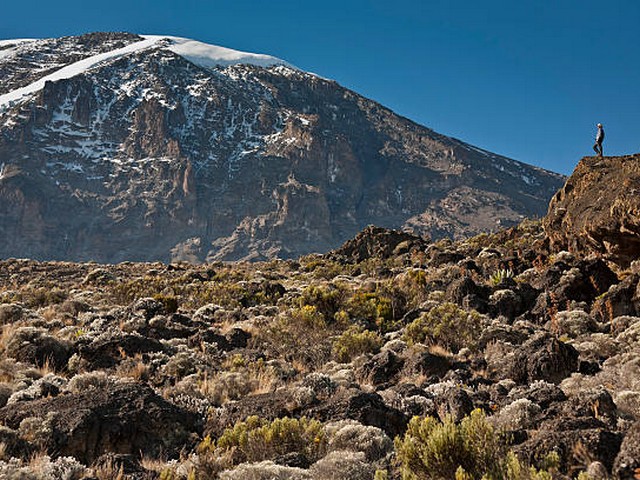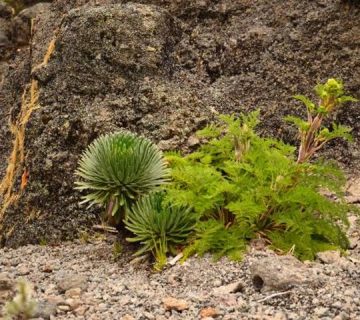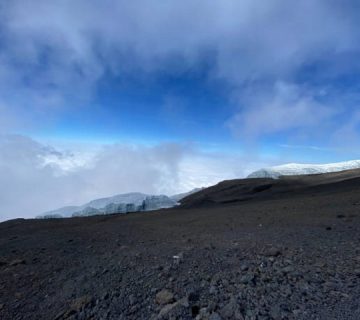How To Experience Tanzania’s Culture During Your Kilimanjaro Trek
Tanzania is a land woven with a rich tapestry of cultural heritage and stunning natural landscapes. At the heart of its allure is the majestic Mount Kilimanjaro, a beacon for adventurers from around the globe. However, the journey to the summit isn’t just a physical challenge; it’s an opportunity to immerse yourself in the vibrant culture that pulses through the veins of this East African nation. Here at Kilimanjaro Centre for Trekking and Ecotourism (KCTE), we believe that understanding and experiencing the local culture enriches your trek immeasurably. In this comprehensive guide, we’ll explore how you can embrace and experience Tanzania’s culture as you embark on your Kilimanjaro adventure.
Embracing the Warmth of Tanzanian Hospitality
Meet the Chagga People
The slopes of Kilimanjaro are the ancestral lands of the Chagga tribe, one of Tanzania’s largest ethnic groups. Engaging with the Chagga people offers a window into an age-old culture that has thrived in the mountain’s shadow. Before or after your trek, consider visiting a Chagga village to learn about their traditional ways of life, including the cultivation of bananas and coffee – two of Kilimanjaro’s primary crops. Our tours at KCTE often include a day dedicated to such cultural excursions, allowing you to interact with local artisans, visit homes, and perhaps even partake in a traditional meal.
Learn Swahili Phrases
Swahili is the lingua franca of Tanzania, a beautiful language that is as musical as the landscapes are scenic. Learning a few basic phrases not only enhances your interaction with the local community but also shows respect towards their culture. Simple greetings like “Jambo” (Hello) and “Asante” (Thank you) can go a long way in forging meaningful connections. Our guides at KCTE are fluent in English and Swahili, and they delight in teaching trekkers some basic Swahili during their journey.
Participating in Traditional Tanzanian Cuisine
Cooking Classes
Indulge in a culinary adventure by partaking in a Tanzanian cooking class, which we happily arrange for our trekkers. This not only gives you a taste of local dishes like Ugali (a staple maize porridge), Sukuma Wiki (collard greens), and grilled Nyama Choma (barbecued meat), but also provides a hands-on experience with the local flavors and cooking techniques.
Coffee Tours
Given that Kilimanjaro’s slopes are dotted with coffee plantations, a guided tour to one of these is a must. Learn about the intricate process of coffee making, from bean to cup, and enjoy a fresh brew as you overlook the plantation landscapes. It’s a perfect way to unwind after the climb or to gear up for the adventure ahead.
Experiencing Tanzanian Music and Dance
Cultural Nights
At KCTE, we organize cultural nights where trekkers can experience traditional Tanzanian music and dance performances around a campfire. This not only enhances your understanding of Tanzanian artistic expressions but also provides a fun, engaging way to relax and connect with fellow travelers and locals alike.
Visit Local Markets and Festivals
If your trek coincides with local market days or festivals, don’t miss out. These are vibrant, colorful events where you can witness the cultural diversity of Tanzania. Markets and festivals are where people showcase their crafts, sell their harvests, and celebrate their traditions through music and dance.
Engaging with Local Crafts and Artisans
Souvenir Shopping
Visiting local markets or artisan groups gives you a chance to bring a piece of Tanzania back home with you. Handmade jewelry, intricate beadwork, and traditional Maasai blankets are just some items you can purchase. These not only serve as souvenirs but also support the local economy.
Art Workshops
Some community centers and local artists offer workshops where you can learn skills like batik making or wood carving. Participating in these workshops helps preserve cultural crafts and provides a unique, hands-on cultural exchange.
Kilimanjaro Trek: The Journey of a Lifetime
Climbing Kilimanjaro is more than just trekking to the roof of Africa; it’s about the journey through an incredible cultural landscape that makes the climb even more rewarding. At Kilimanjaro Centre for Trekking and Ecotourism (KCTE), we’re committed to making your experience as enriching culturally as it is physically exhilarating.
Why Choose KCTE for Your Kilimanjaro Adventure?
At KCTE, we integrate cultural experiences seamlessly into your trekking itinerary. Our knowledgeable guides are not only expert climbers but also passionate ambassadors of their culture. We strive to ensure that while you aim for the summit, you gain a deep appreciation of Tanzania’s rich cultural tapestry.
FAQ
What should I expect during cultural visits in Tanzanian villages?
Expect a warm welcome, often with music and dance. You’ll likely be invited to observe or participate in daily activities and might be offered local dishes to try.
How can I be culturally respectful during my Kilimanjaro climb?
Always ask permission before taking photos of people, dress modestly, learn a few words of Swahili, and engage with locals with an open heart and mind.
Are there any cultural considerations I should be aware of?
Yes, Tanzanians are generally conservative, so respectful attire and behavior in villages and public spaces are important. Also, punctuality might be flexible, known locally as ‘African Time’.
Can I participate in any community projects?
Yes, there are often opportunities to engage in community projects. KCTE can arrange for participation in sustainable, community-driven projects for interested trekkers.
Conclusion
Your trek to the summit of Kilimanjaro is a perfect opportunity to immerse yourself in the heart of Tanzania—not just its landscapes but also its culture. At Kilimanjaro Centre for Trekking and Ecotourism (KCTE), we ensure that your journey is filled with unforgettable cultural experiences that resonate just as profoundly as the physical challenge of the climb. Ready to experience the true spirit of Tanzania? Book your Kilimanjaro climbing adventure with us today and prepare for an expedition that transcends the ordinary.




